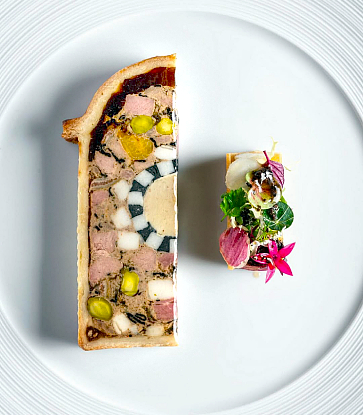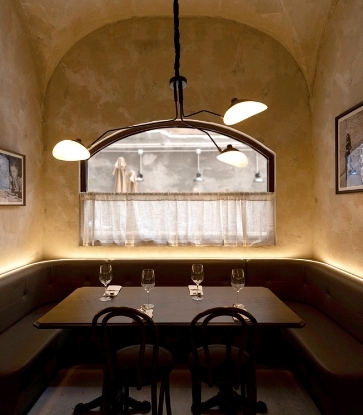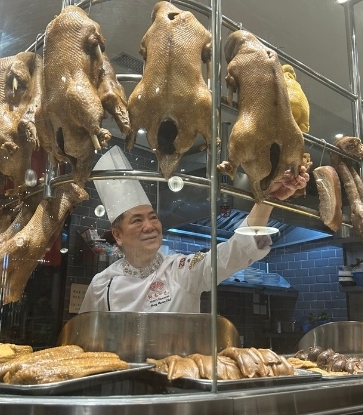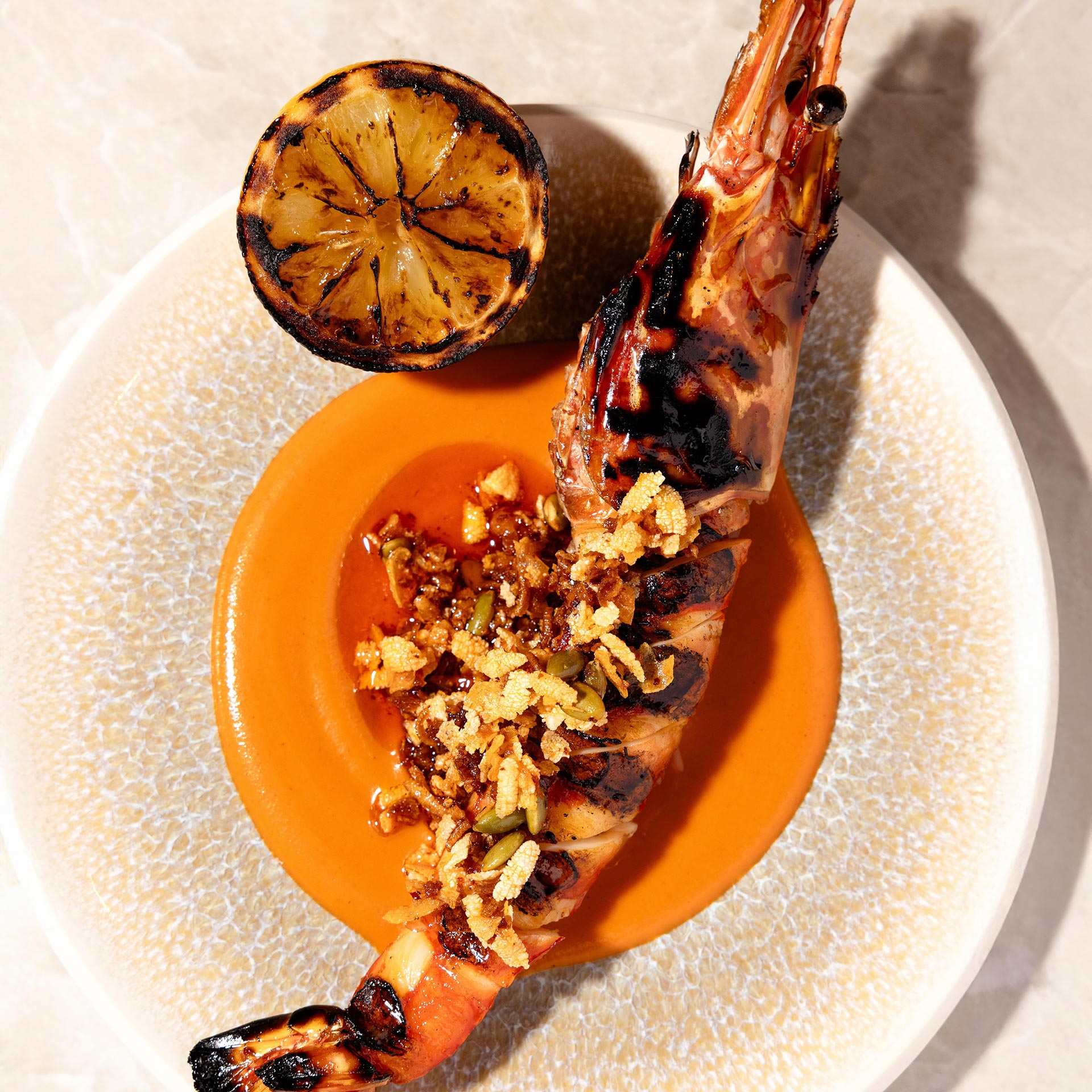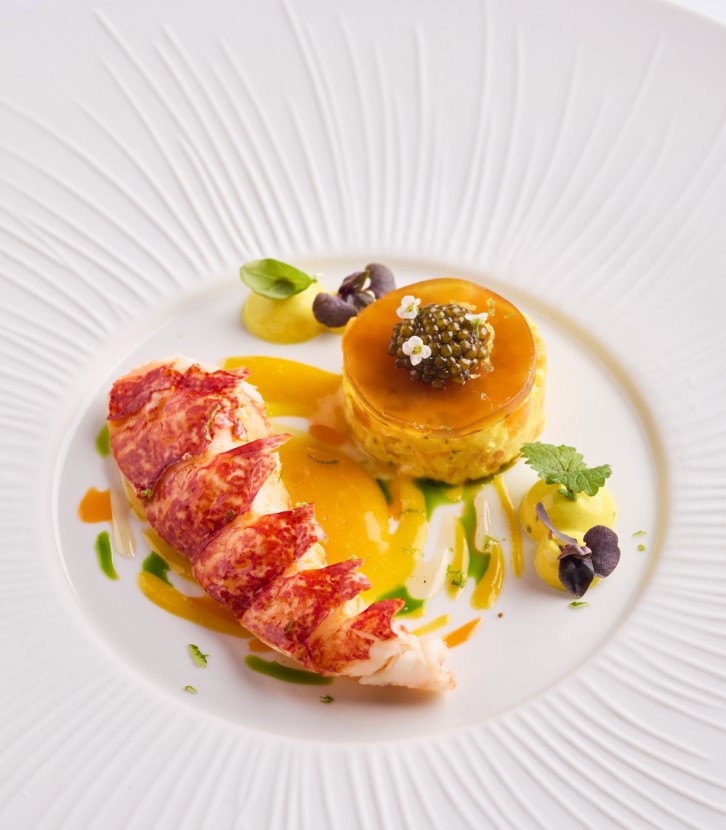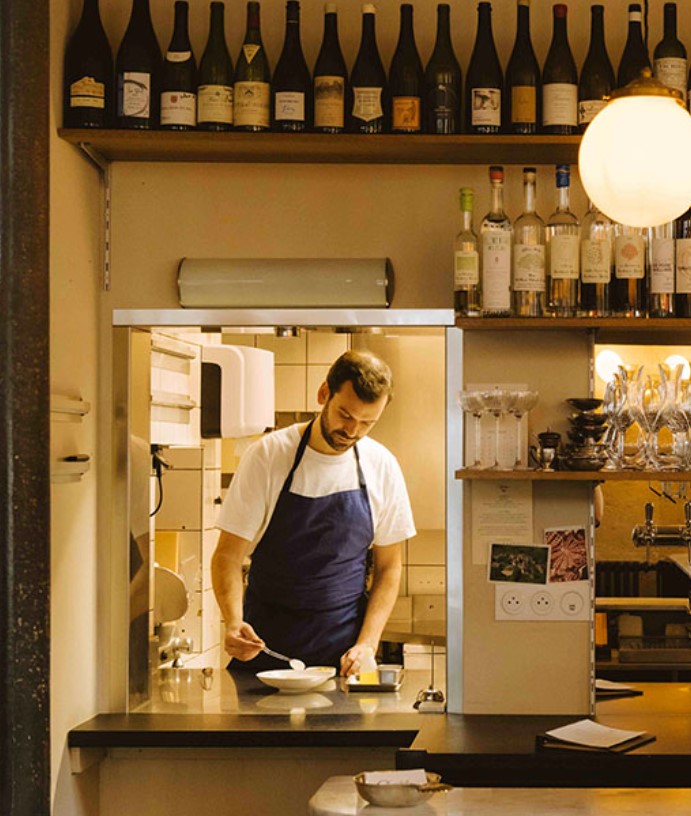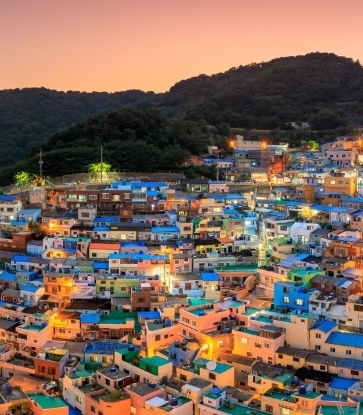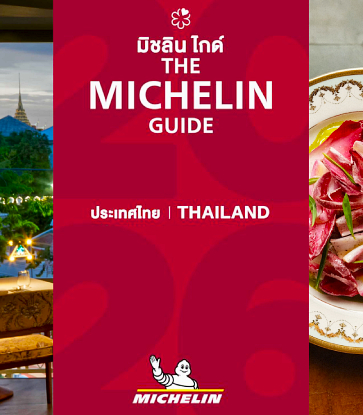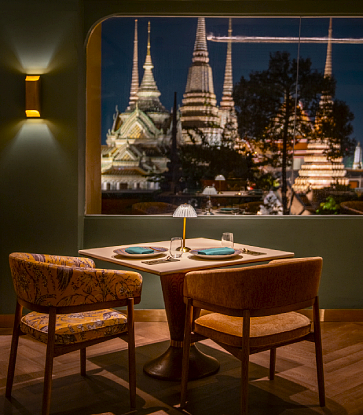Latin America is home to a steeped and storied culture, a vibrant gastronomic history, warm people, and some of the world’s finest coffees. From the seeds of red ripen cherries hand-scoured from the region’s mountainous terrains to deliciously brewed cups of joe we get to enjoy at the press of a button, coffee from this leading producing region has become integral to our daily lives, fuelling our mornings, bookending our MICHELIN-starred meals, and picking us up in the moments in between.
Increasingly, coffee is also finding a well-deserved spot in our modern culinary vernacular. In a very special collaboration, coffee giant Nespresso has invited two acclaimed Hong Kong-based Latin American chefs – Agustin Balbi of one-MICHELIN-starred Andō and Ricardo Chaneton of one-MICHELIN-starred Mono – to bring to life its signature Nespresso Origins Colombia Organic Coffee, by infusing the brew’s earthy and aromatic essence into their edible creations.
Boasting fruity and toasted cereal notes, the single-origin coffee is crafted from beans cherry-picked by farmers from Colombia’s Tolima region – not too far from where the Venezuela-born chef Chaneton and Argentinian native chef Balbi grew up. For the chefs, whose reverence for their culture’s flavours and native ingredients can be deeply felt in their respective menus, this feels like the perfect pairing.
A SWEET NOTE
Chef Balbi has chosen to reimagine alfajores, a Latin American classic sweet treat — which has also become an Andō signature — close to his heart.“Growing up in Argentina, alfajores were the most popular sweet among kids. At recess in school, every kid goes to buy them. They are part of any Argentinian child's life and adulthood. It is the perfect match with coffee or Argentinian mate tea. Of course, they were and still are my favourite sweets. I love a particular one that had peanuts chopped on top – so good!” he says.
At Andō, where every dish is informed by a personal memory of chef Balbi’s, the executive chef and co-founder's innovative take on the alfajor exudes unmistakable finesse while still retaining the key elements of the traditional treat. Created alongside Andō pastry chef Arnaud Labbe, it features ice cream and coffee caramel topped with a chocolate cremoso, all presented between two hazelnut cookies garnished with whipped cream and cacao nibs. It has proven a resounding hit among guests.
For this one-of-a-kind edition exclusively created for Nespresso, however, the traditional dulce de leche in between the cookies has been replaced by a delightful coffee ice cream. “The Origins Colombia Organic Coffee’s deep and delicate flavours give a very special final result to the ice cream, which is full of elegance and at the same time has a very powerful coffee flavour,” enthuses chef Balbi of the dish, which currently features on Ando’s menu and available till end of April.
He adds: “Another way we used the coffee is by making a hazelnut coffee caramel. The coffee is perfect for this preparation because of the fruity notes of red fruits like blackcurrant and cranberry. This brings a nice acidic note to balance the sweetness of the caramel.”
TRUE ROOTS
As for Mono’s chef-owner Chaneton, whose menu of regional staples refined with French-trained techniques earned his restaurant the title of Asia’s first MICHELIN-starred Latin American restaurant in 2022, he has conjured up an original dish for this collaboration.“It’s a special recipe created with native ingredients from Latin America in mind. One of those is coffee, the other is potato. In this dish, we use Oscietra caviar as well, which is farmed in Uruguay in South America, in the Rio Negro, the largest blackwater river in the world,” chef Chaneton explains.
“It is a dish that uses ingredients from both the land and water. We purposely chose ingredients that take me back to Latin America.”
To infuse the Origins Colombia Organic Coffee, chef Chaneton gently simmers four different types of potatoes in a coffee cream made from the roasted ground coffee in the capsules. The ground coffee is also sprinkled atop the dish and a tuile is added for extra crunch.
The result is a surprise-filled medley on the palate, where the coffee’s fruitiness meets the fragrant potatoes, and the fresh mineral flavour and notes of iodine from the caviar round out the dish nicely.
“I would describe this specific coffee as having notes of citrus with a bit of bitterness that pairs very well with potatoes, and in small amounts, goes well with caviar. It’s also a very interesting dish because most people would never think of matching coffee with caviar, so it makes it quite unique.”
FROM THE GROUND UP
The two chefs’ mission to preserve the heritage and ingredients from their native soils is echoed by Nespresso, for which sustainability has been a cornerstone of the company ethos for 30 years. Believing that coffee has the power to regenerate our environment and be a force for good, the company in 2022 achieved carbon neutrality for every cup of coffee sold in a significant milestone certified by the Carbon Trust. It is working to reach net-zero greenhouse gas (GHG) emissions before 2050.
Here in Hong Kong, its local recycling programme is also running in full force. Aluminium capsules are repurposed into various products and extracted coffee grounds are processed into compost. The latter helps to fertilise the likes of herbs, fruits and vegetables across the city’s farms, in turn nourishing the very ingredients preferred by chefs like Balbi and Chaneton, who both source fresh seasonal produce from local farmers and work with non-profit organisations to reduce food waste.
Of course, sustainability isn’t just about the food on a plate. “At Mono, we’re passionate about doing our part in helping mother earth,” says chef Chaneton, who adorned his restaurant’s interiors with recycled linens and low-consumption lights, while a tap filtration still and sparkling water system allows his team to make their own “bottled” water. Similarly, among chef Balbi’s eco-friendly practices at Andō includes forgoing traditional printed menus and opting for a special paper that contains up to 15 percent of food waste residue.
The core of sustainability, however, lies perhaps in the health and wellbeing of people – from farmers to employees and consumers. Nespresso recognises this, and through its AAA Sustainability Quality Programme launched in 2003 with Rainforest Alliance, makes it a priority to cultivate long-term relationships with farmers (over 70,000 farmers in 12 countries are part of the programme) and better their livelihood by investing in community infrastructures and agricultural practices.
Chef Balbi shares the same sentiment. “Without a doubt, sustainability is a big part of how we run Andō, not only in the food but also in the human element. We make a lot of efforts, such as providing one additional weekly rest day for our team, to make sure people are happy working with us and share our values regarding food, cuisine, and wellbeing.”
Together with collective mindfulness and gratitude for our planet, the industry as a whole might be able to maximise its potential in fostering a healthier and better future.
“Respecting nature and its time is paramount,” agrees chef Balbi. “It is our main resource but also our best source of inspiration. It is our responsibility to be conscious in the way we work with it and how we source from it.”
This article is written by Cherry Lai for MICHELIN Guide Hong Kong Macau.




